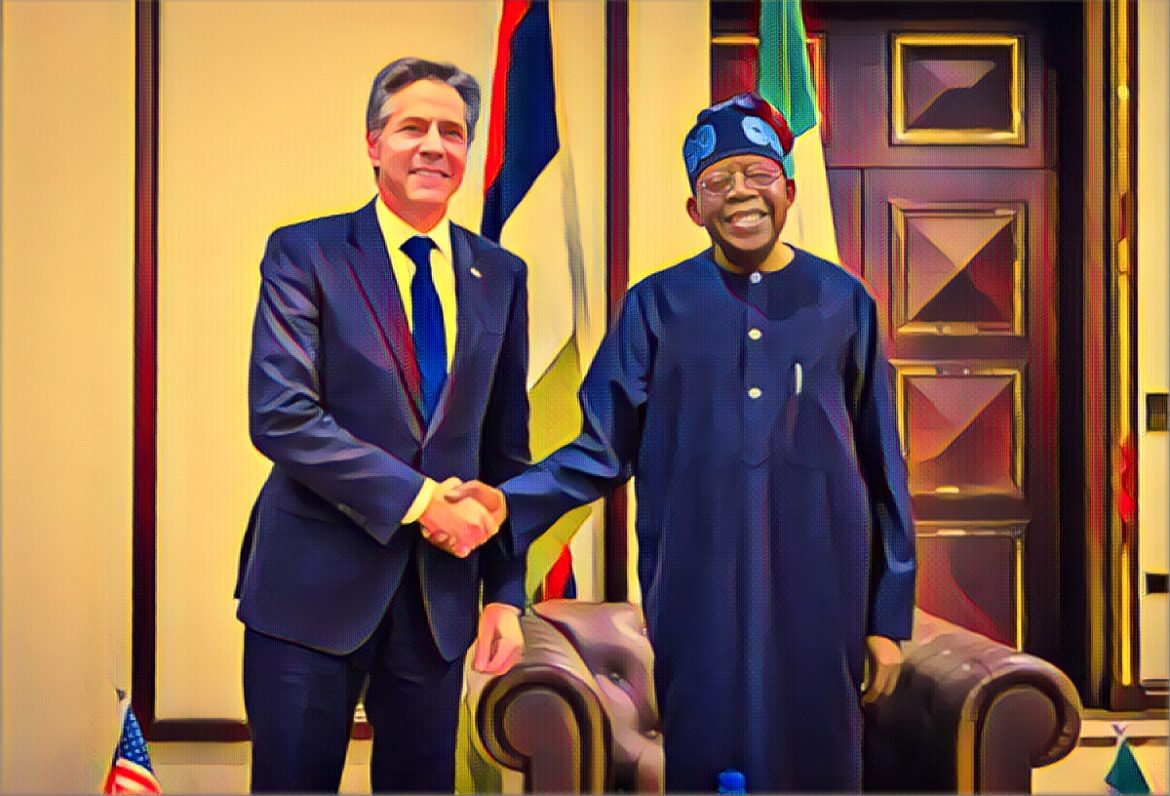In a significant bilateral discussion focused on security and economic cooperation, President Bola Tinubu of Nigeria welcomed U.S. Secretary of State Antony Blinken to Abuja. This meeting is part of Blinken’s four-nation tour of Africa, which includes stops in Cape Verde, Ivory Coast, Nigeria, and Angola from January 21-26. The visit underscores the U.S.’s commitment to strengthening relationships with democracies in the sub-region, particularly in the context of global crises.
During his visit, Blinken announced an additional $45 million funding to address growing security concerns in Nigeria and neighboring West African countries. This funding supplements the $300 million already invested by the U.S. in coastal West Africa over the past two years. U.S. security assistance to Nigeria since 2017 amounts to approximately $650 million, in addition to $1.8 billion in foreign military sales.
The U.S. Secretary of State’s visit aims to discuss partnerships over trade, climate, infrastructure, health, security, and other issues, following up on a summit in Washington with African leaders in December 2022. Security challenges in West Africa, including the fallout of a coup in Niger last year and Russia’s growing influence in the region, are key topics during Blinken’s trip.
In Ivory Coast, Blinken met President Alassane Ouattara, where he announced the extra financing. The funding is crucial as Islamist insurgencies have intensified in several coastal West African countries, beginning in Mali in 2012 and spreading across the Sahel region. The U.S. faced a setback in its fight against militants in the Sahel when military officers toppled Niger’s President Mohamed Bazoum, a key ally, in July last year. The instability has raised concerns, especially as juntas have cut ties with traditional Western allies.
Blinken’s visit also included a meeting with Akinwumi Adesina, president of the African Development Bank (AfDB), and emphasized the U.S.’s commitment to Africa’s future. In Abuja, he held bilateral talks with President Tinubu, discussing mutual security challenges and the way forward.
Foreign Affairs Minister, Yusuf Tuggar, briefed the press after the meeting, highlighting discussions on deepening democracy in West Africa, strengthening trade relations, and security cooperation. Tuggar also mentioned the need for multilateral reforms, particularly democratizing the United Nations Security Council.
Blinken’s visit to Nigeria includes meetings with the business community and civil society representatives in Lagos to discuss the U.S.-Nigeria bilateral relationship and commitments made during the U.S.-Africa Leaders’ Summit. Topics include climate change, food security, and health security.
Blinken noted that a secure, democratic, and prosperous Nigeria is beneficial for Africa, the U.S., and the world. He remarked on the deep and enduring partnership between the United States and Nigeria, which spans more than six decades. The U.S. has been a significant partner in Nigeria’s economic growth, health sector, and in tackling security challenges.
In terms of economic, trade, and investment ties, Blinken stated that Nigeria is America’s second-largest trading partner in Africa, with two-way trade exceeding $10.6 billion in 2022. The U.S. is also one of the largest foreign investors in Nigeria, with foreign direct investment totaling $5.6 billion in 2022.
On democracy and human rights, Blinken highlighted U.S. support for strengthening election processes in Nigeria. He noted that for the 2023 elections, the U.S. supported 44 civil society organizations to provide civic and voter education to 68 million Nigerians. He also emphasized the role of education and exchange programs in fostering bilateral ties.
The visit of the U.S. Secretary of State to Nigeria is a significant step in reinforcing the strategic partnership between the two nations. It highlights shared interests and values in promoting security, democracy, and economic development in the region. The discussions and commitments made during this visit are expected to have lasting impacts on the U.S.-Nigeria relationship and the broader regional dynamics in West Africa.


